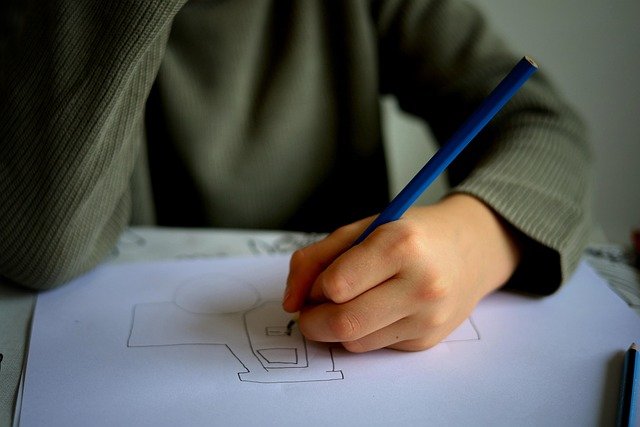Studying Fashion Design in France in 2025: Exploring Education, Creativity, and Global Opportunities
In 2025, France remains one of the most influential centers for fashion design education, offering students a deep connection to creativity, craftsmanship, and cultural history. Leading institutions and design academies across France provide structured programs that combine artistic theory with practical studio experience. Through internships, exhibitions, and global networking, learners can explore how French fashion education continues to shape the next generation of designers in an ever-evolving industry.

France remains a cornerstone of the global fashion industry, blending centuries of artisanal tradition with contemporary innovation. Students pursuing fashion design in France benefit from a unique educational ecosystem that emphasizes both technical mastery and creative experimentation. The country’s fashion schools are deeply connected to major fashion houses, textile manufacturers, and design studios, providing students with real-world exposure and networking opportunities that extend far beyond the classroom.
The curriculum at French fashion institutions typically combines foundational skills in pattern making, draping, and garment construction with advanced courses in digital design, sustainable fashion, and brand management. Students engage with both traditional couture methods and modern technologies, preparing them for diverse career paths in an evolving industry. The multicultural environment of French fashion schools also fosters cross-cultural collaboration, which is increasingly valuable in today’s globalized fashion marketplace.
France as a Global Fashion Education Hub
France’s reputation as a fashion education hub is built on its historical significance and ongoing influence in the industry. Paris, in particular, serves as the epicenter of fashion education, hosting numerous prestigious institutions that have shaped generations of designers. The city’s biannual fashion weeks, extensive museum collections, and thriving design districts provide students with constant inspiration and learning opportunities outside formal coursework.
Beyond Paris, cities like Lyon, known for its textile heritage, and Marseille, with its emerging design scene, offer alternative educational environments. French fashion education emphasizes a holistic approach that integrates art history, cultural studies, and business acumen alongside technical design skills. This comprehensive framework prepares graduates to navigate the complex landscape of contemporary fashion, where creativity must align with commercial viability and ethical considerations.
The international recognition of French fashion credentials opens doors worldwide. Graduates from French institutions are highly sought after by fashion houses, luxury brands, and creative agencies across Europe, Asia, and the Americas. The prestige associated with French fashion education often translates into competitive advantages in job markets and entrepreneurial ventures.
Leading Fashion Design Schools and Programs
Several institutions stand out for their rigorous programs and industry connections. Schools such as Institut Français de la Mode, École de la Chambre Syndicale de la Couture Parisienne, and ESMOD Paris offer specialized programs ranging from three-year bachelor’s degrees to advanced master’s courses. Each institution has its own pedagogical approach, with some emphasizing haute couture techniques while others focus on ready-to-wear or sustainable design.
Admission to these programs is competitive, typically requiring a portfolio demonstrating creative potential, academic transcripts, and often proficiency in French or English depending on the program. Many schools offer preparatory courses for international students to strengthen their portfolios and language skills before entering degree programs. Program structures vary, but most include studio work, technical workshops, internships with fashion houses, and culminate in graduate collections presented to industry professionals.
The duration and intensity of programs differ based on the degree level. Bachelor’s programs generally span three to four years, while master’s degrees require an additional one to two years. Some institutions also offer short-term courses and summer programs for students seeking specialized training without committing to full degree programs.
Creative Development and Hands-On Learning
French fashion education prioritizes experiential learning through studio-based projects, collaborative assignments, and industry partnerships. Students spend considerable time in ateliers, working directly with fabrics, developing prototypes, and refining their technical skills under the guidance of experienced instructors and visiting professionals. This hands-on approach ensures that graduates possess not only theoretical knowledge but also the practical expertise required in professional settings.
Internships form a crucial component of fashion education in France. Most programs mandate one or more internship periods, allowing students to work within established fashion houses, emerging brands, or design studios. These experiences provide invaluable insights into industry operations, from design conception to production and marketing. Students build professional networks and often secure employment opportunities through internship connections.
Collaborative projects with industry partners are increasingly common, giving students exposure to real-world briefs and deadlines. Such projects might involve designing capsule collections for brands, participating in sustainability initiatives, or contributing to fashion exhibitions. This integration of academic learning with professional practice distinguishes French fashion education and prepares students for the demands of the industry.
Building an International Career in Fashion
Graduates of French fashion programs pursue diverse career paths reflecting the breadth of the industry. Many enter design roles at established fashion houses or launch independent labels, while others specialize in areas such as textile design, fashion illustration, styling, or trend forecasting. The analytical and creative skills developed during their studies also prepare graduates for positions in fashion journalism, buying, merchandising, and brand management.
The international nature of French fashion education facilitates global career mobility. Alumni networks spanning multiple continents provide support and opportunities for graduates seeking positions abroad. Proficiency in French and English, combined with cross-cultural competencies developed during studies, enhances employability in international markets.
Entrepreneurship is another significant pathway, with many graduates establishing their own brands or consultancies. French fashion schools increasingly offer business development resources, mentorship programs, and incubator spaces to support student and alumni ventures. The combination of creative training and business knowledge equips graduates to navigate the challenges of launching and sustaining fashion businesses in competitive markets.
Financial Considerations for Fashion Studies in France
Studying fashion design in France involves various costs that prospective students should carefully consider. Tuition fees vary significantly depending on the institution type and program level. Public institutions generally charge lower fees, often ranging from 200 to 700 euros annually for EU students, while non-EU students may face higher rates. Private fashion schools typically charge between 8,000 and 15,000 euros per year, with some prestigious institutions exceeding 20,000 euros annually.
Beyond tuition, students must budget for living expenses in French cities. Paris, being one of the most expensive cities globally, requires approximately 1,200 to 1,800 euros monthly for accommodation, food, transportation, and personal expenses. Other cities like Lyon or Marseille may offer slightly lower living costs. Materials and supplies for fashion studies, including fabrics, tools, and equipment, can add several hundred euros per semester to student budgets.
Scholarships and financial aid options exist through various sources, including French government programs, institutional scholarships, and international funding organizations. Prospective students should research these opportunities early in their application process. Part-time work is possible under student visa regulations, though the demanding nature of fashion programs may limit available time for employment.
| Expense Category | Estimated Annual Cost (EUR) | Notes |
|---|---|---|
| Public Institution Tuition | 200 - 700 | For EU students; non-EU rates may be higher |
| Private Institution Tuition | 8,000 - 20,000+ | Varies by school prestige and program |
| Living Expenses (Paris) | 14,400 - 21,600 | Based on 1,200-1,800 EUR monthly |
| Living Expenses (Other Cities) | 10,800 - 16,200 | Based on 900-1,350 EUR monthly |
| Materials and Supplies | 500 - 1,500 | Depends on program requirements |
Prices, rates, or cost estimates mentioned in this article are based on the latest available information but may change over time. Independent research is advised before making financial decisions.
Practical Steps for Prospective Students
Prospective students should begin their application process well in advance, typically 12 to 18 months before intended enrollment. Research into specific programs, their curricula, faculty expertise, and alumni outcomes helps identify the best fit. Preparing a strong portfolio is essential, showcasing creative range, technical skills, and personal design vision. Many schools provide portfolio guidelines, and seeking feedback from mentors or professionals can strengthen applications.
Language preparation is equally important. While some programs offer instruction in English, learning French enhances the overall experience and facilitates deeper engagement with local culture and industry. Many institutions offer language support services, and taking French courses before arrival can ease the transition.
Visa and administrative requirements vary based on nationality and program duration. Non-EU students typically need student visas, which require proof of enrollment, financial resources, and health insurance. Starting these processes early prevents delays and ensures smooth entry into France. Understanding healthcare, housing, and banking systems before arrival also contributes to a successful transition.
Studying fashion design in France in 2025 offers aspiring designers an unparalleled opportunity to immerse themselves in a rich creative environment, develop advanced technical skills, and build international networks. The combination of prestigious institutions, hands-on learning approaches, and deep industry connections positions graduates for successful careers in the global fashion industry. While financial and logistical considerations require careful planning, the educational and professional benefits make France a compelling destination for fashion education.




